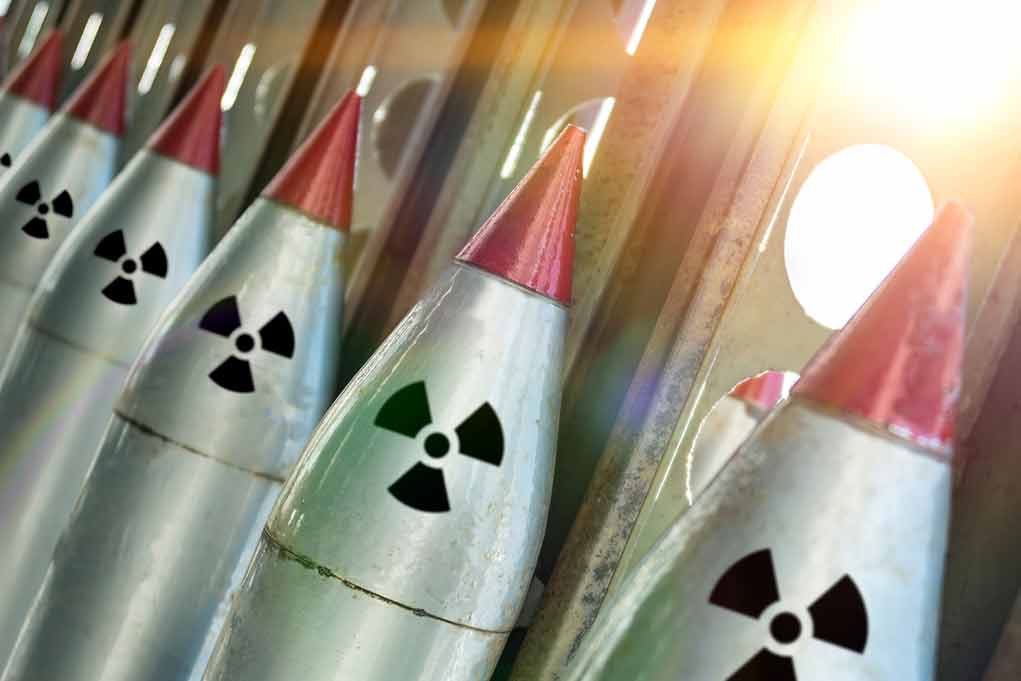
Iran has issued a stark warning to the United States that it will be held legally responsible for any Israeli strikes on Iranian nuclear facilities, potentially derailing crucial nuclear talks and igniting a regional conflict.
Key Takeaways
- Iran’s Foreign Minister Abbas Araghchi has explicitly warned the US will bear “legal responsibility” if Israel attacks Iranian nuclear facilities
- Iran is currently enriching uranium to 60% purity, far beyond the 3.67% limit set in the 2015 nuclear deal that President Trump withdrew from in 2018
- US intelligence reports suggest Israel is preparing for potential strikes against Iranian nuclear sites ahead of crucial US-Iran nuclear talks in Rome
- Iran’s Revolutionary Guards have promised a “devastating and decisive response” to any Israeli attack
- The Biden administration insists Iran must end all uranium enrichment, while Iran claims this right under international treaties
Iran’s Explicit Threat to the United States
As tensions reach a boiling point in the Middle East, Iran has issued an unambiguous warning that any Israeli military action against its nuclear facilities would be considered a US-backed operation. In a forceful statement, Iran’s mission to the United Nations declared, “In the event of any attack against the nuclear facilities of the Islamic Republic of Iran by the Zionist regime, the government of the United States shall bear legal responsibility, having been complicit therein.” This provocative stance comes just days before the fifth round of critical nuclear negotiations scheduled to take place in Rome.
Iranian Foreign Minister Abbas Araghchi has elevated the rhetoric by announcing that Iran might take “special measures” to defend its nuclear infrastructure if Israeli threats continue. “I have called on the international community to take effective preventive measures against the continuation of Israeli threats, which if unchecked, will compel Iran to take special measures in defense of our nuclear facilities and materials,” said Abbas Araghchi, Iran’s Foreign Minister.
Iran warns attack on its nuclear sites will lead to ‘widespread regional war’
— Press TV 🔻 (@PressTV) January 31, 2025
Military Preparations and Intelligence Reports
US intelligence sources have reported that Israel appears to be preparing for potential strikes against Iranian nuclear facilities. While Israel has not officially confirmed these preparations, it has consistently maintained its readiness to act unilaterally if diplomatic efforts fail to curtail Iran’s nuclear ambitions. The Islamic Revolutionary Guard Corps has responded with its own warning, promising a “devastating and decisive response” to any Israeli aggression, signaling that any attack would trigger immediate and severe retaliation.
“They are trying to frighten us with war but are miscalculating as they are unaware of the powerful popular and military support the Islamic Republic can muster in war conditions,” said Alimohammad Naini.
The United States will be represented at the upcoming talks by Mideast envoy Steve Witkoff and State Department policy planning director Michael Anton. These negotiations represent the fifth attempt to reach an agreement that would curb Iran’s uranium enrichment program in exchange for relief from international sanctions. President Trump has been briefed on the situation and has discussed potential outcomes with Israeli Prime Minister Benjamin Netanyahu in recent days.
The Nuclear Enrichment Dispute
At the heart of the dispute is Iran’s insistence on its right to enrich uranium on its own soil. Currently, Iran is enriching uranium to 60% purity, dangerously close to the 90% needed for weapons-grade material. The Biden administration demands Iran completely cease all enrichment activities, while Iran claims this right under the Nuclear Non-Proliferation Treaty. The 2015 nuclear deal, which President Trump withdrew from in 2018, had allowed Iran to enrich uranium to just 3.67% purity.
“Iran really does feel that it has paid a huge cost for its right to enrich on its own soil. It has not only paid billions in actually setting up the infrastructure, but it has paid billions in sanctions that were imposed on it and the loss of oil sales,” said Ellie Geranmayeh.
Iran has pledged to report any changes to its nuclear program to the International Atomic Energy Agency, though skepticism remains about its transparency. Experts note that Iran’s nuclear program has become a matter of national pride and sovereignty, complicating diplomatic efforts. The program represents billions in investment, both in direct costs and through economic hardship caused by international sanctions, making Iranian officials reluctant to abandon it without significant concessions.




